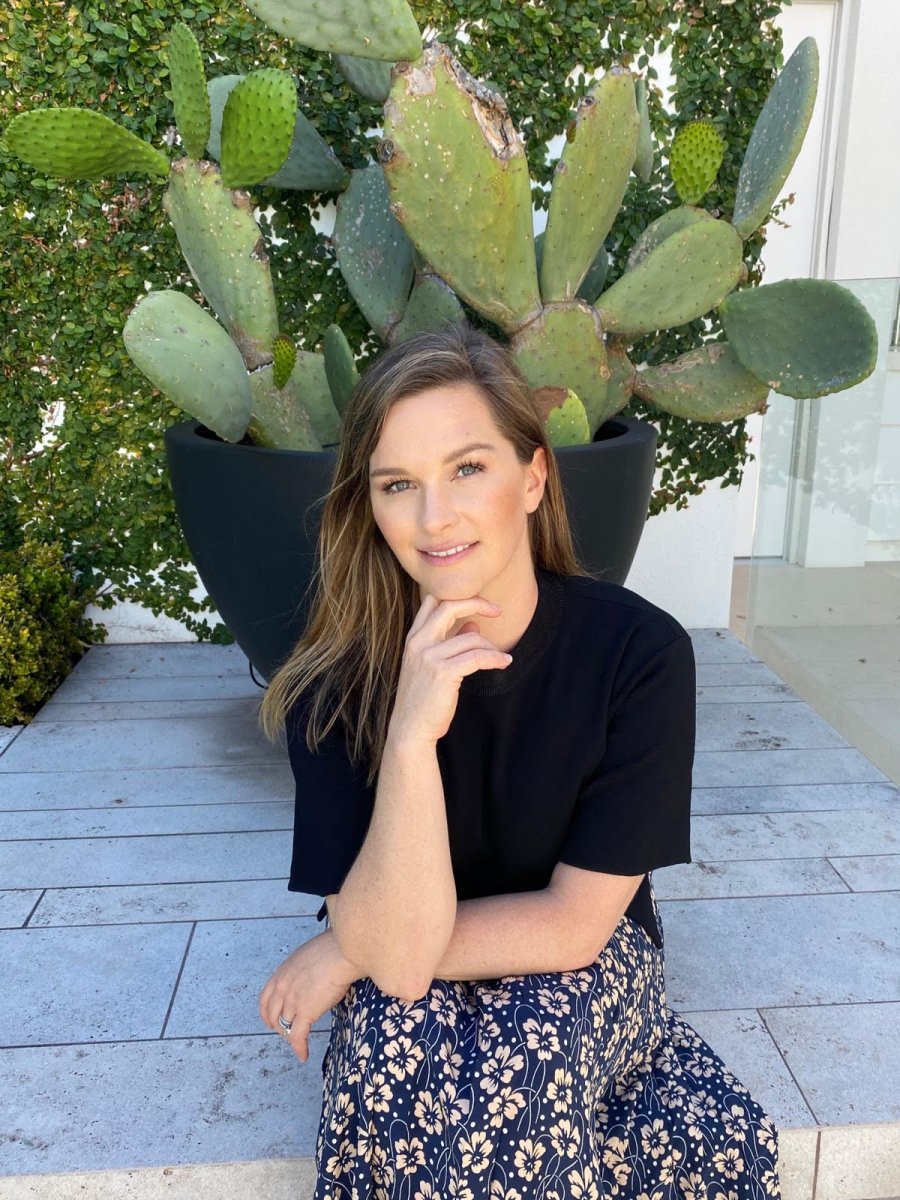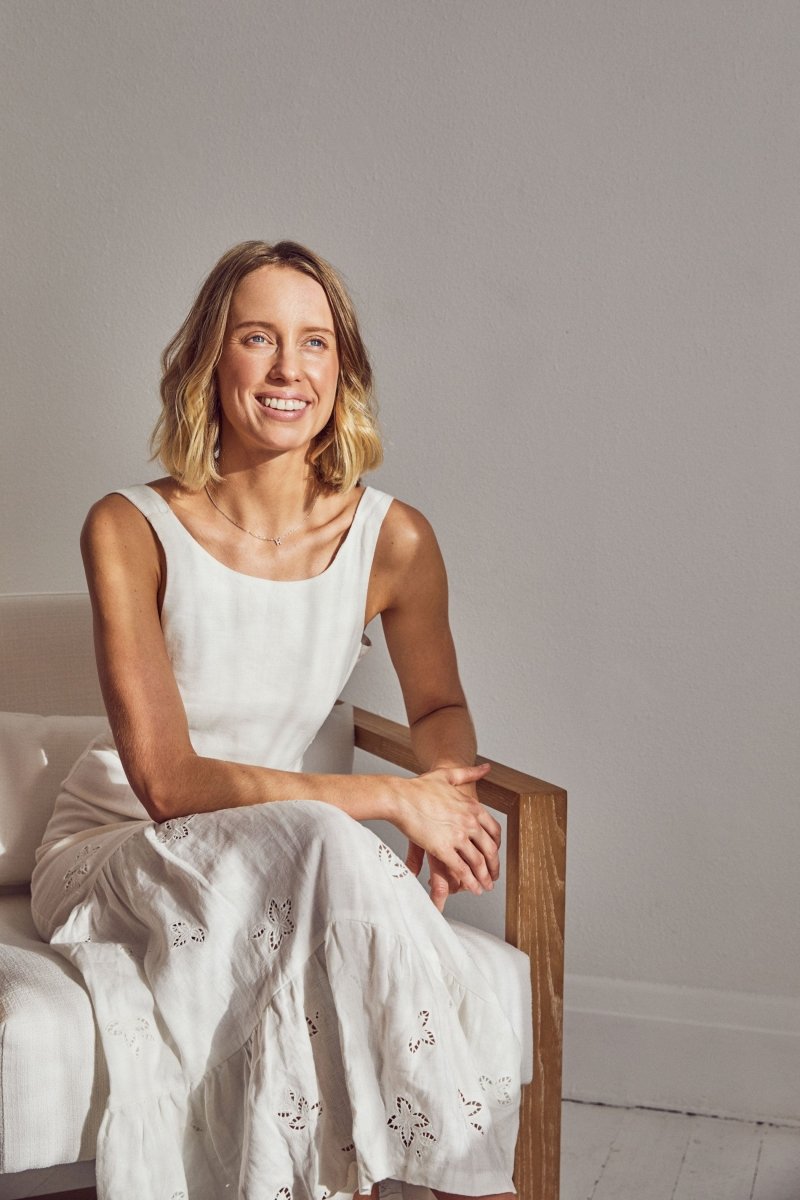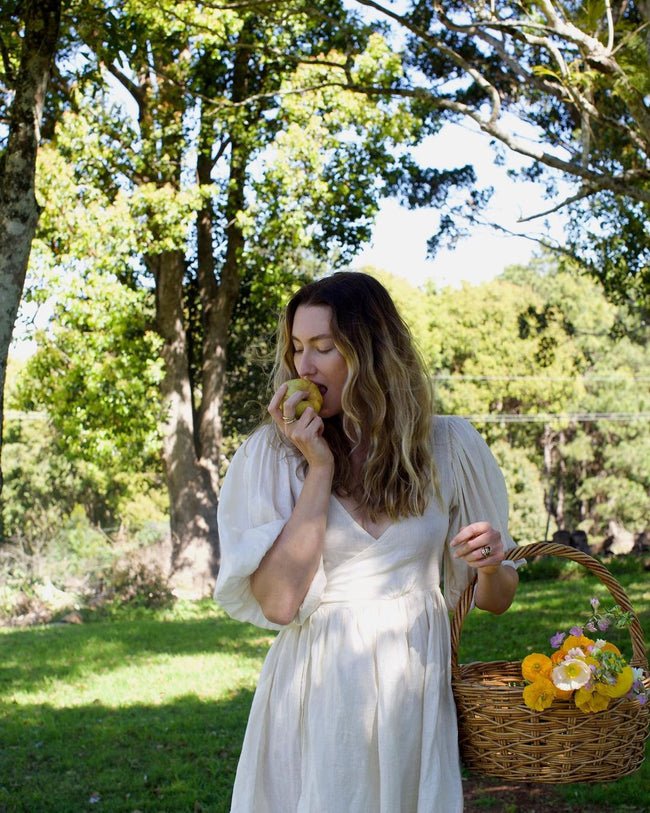#MOTHERSKIN Lucy Caratti

Meet Dr Lucy Caratti, a GP and Australasian College of Nutritional and Environmental Medicine (ACNEM) Doctor. In short a smart cookie and an absolute expert in the field when it comes to endocrine disrupting chemicals and what those pesky UV rays are really doing to us!
Lucy simplifies what endocrine disrupting ingredients in our skincare we should be looking out for (Kimmy K you should join this one), how to spot a Melanoma (important peeps) and my favourite part of this interview - The best health advice Lucy has received over the years of being a GP.
What are endocrine disrupting chemicals and what effect do they have on our health?
Endocrine disrupting chemicals are substances that can interfere with our endocrine system, for example our reproductive, thyroid and adrenal hormones. They upset the normal function of hormones and have been found to effect puberty, fertility and the immune system, as well as cause behavioural issues, hormonal problems caused by oestrogen excess, and even linked to some cancers. Endometriosis, PCOS, heavy and painful periods and PMS symptoms are so common and are all linked to these nasty little chemicals. They are found everywhere in our everyday life, from skin care products we put on our bodies, foods we eat, candles we burn, even the furniture and materials in our homes and cars!!
What endocrine disrupting ingredients in our skincare should we be looking out for?
There are so many!!! But I think the two that are most common and cause the most damage are parabens (eg. methylparaben or anything ending in -paraben) and phthalates. These are found in foundations, blush, hairspray, nail varnish and fake tan, just to name a few. Making sure you read the entire list of ingredients and checking them all is a tedious, but extremely worthwhile exercise to understand exactly what you are putting on your body. The Think Dirty and EWG are amazing apps that can help decipher the complicated ingredient lists and rate different brands in regards to their toxicity, and the Chemical Maze has a lot of information about individual chemicals. After a while, you will come to know the brands that you know you can trust and recognise the names of chemicals you want to avoid.
What personal care items would you highly recommend going clean with first?
According to the EWG (Environmental Working Group), women apply on average over 160 different chemicals on their bodies every day, and in some cases, it has been recorded as being over 500 different chemicals!! So I think any reduction in these chemicals is a bonus. Make up is probably one of the easier things to change, as there are a lot of great brands out there which have beautiful products. I think people find skincare the hardest, as the chemicals do often produce good results on the exterior, despite the damage to the rest of your body!!! However, I really stress to patients that once the body is effectively able to eliminate toxins without being over-burdened, the need for so many active chemicals reduces and the skin is naturally a lot more clear and radiant! One of the easiest changes I have made was body moisturiser. I recommend (and use myself) a food-grade coconut oil, which is a cheap and easy way to moisturise the body, and I actually find it a lot more effective than some of the fancy, chemical-laden moisturisers on the market!
How can we limit our exposure to endocrine disrupting chemicals?
When you first start looking into the chemicals that surround us, it can become very overwhelming and can cause a lot of anxiety and panic. This is not helpful at all!! Instead, I discuss with patients about tackling one area of your life at a time. Luckily, the option to reduce these chemicals has become a lot easier, with great products being widely available in stores around us. Look at using clean products in the kitchen and laundry, using clean skincare and make up, eating clean organic food where possible, being aware of the chemicals in textiles, furniture and carpet, as well as in perfumes and scented candles.
Why is SPF so important? And the associate with skin cancer?
SPF is so important as it is essentially indicating how effective the product is at preventing sun damage, which is the reason we are applying the suncream! So ideally, you want the highest SPF possible, as well as being broad-spectrum. UVA and UVB ultraviolet rays from the sun both damage the skin in different ways. UVB rays are responsible for producing sunburn and play the larger role in causing skin cancers, particularly melanoma. UVA rays, on the other hand, are also involved in skin cancers, but in addition they penetrate the skin to a deeper level and cause skin ageing. Both UVA and UVB can cause DNA damage and only broad spectrum sunscreen will protect you from both of these!! It is also really important to note that we need to reapply sunscreen a lot more often than we realise. Every 30 minutes and after every swim!
What should we look for in a Melanoma? And how often should we get skin checks?
Melanoma is one of the scariest parts of living in this beautiful, sun-abundant country of ours! Firstly, I recommend being really aware of what freckles and moles you have on your body, with frequent self-examination. This allows for quick detection of a new spot, or of a change of a pre-existing spot. Taking photos of any large, pigmented lesions can help you monitor any changes that could occur. Secondly, I recommend early review by a medical professional if you have any new spots or changes in your skin, in particular if anything becomes itchy or bleeds easily. Also look for moles that may have an irregular looking border or changes in colour, or have many colours in it. In regards to skin checks by your doctor, this will depend on your family history and particular skin type and exposure. It could range from 6 monthly in high risk cases, to 5 yearly in low risk cases. Go by your doctors recommendation, while still keeping a close eye on your own body.
What do you look for in an SPF for yourself and your family?
For my family and I, I look for a clean suncream with adequate broad spectrum cover, that is effective and easy to apply! I absolutely love Mother SPF, as it covers all my requirements, as well as being healthy for the ocean!! I also love that, compared to so many other physical suncreams on the market, I can apply Mother under my daily make up and other products without having a white cast or being too oily. It really nourishes my skin and feels light and fresh!
The best health advice you have received over the years of being a GP?
I think the best health advice i have received was that the stress of making lifestyle changes or treatment regimes negates the positive changes you are trying to achieve. Stress (both mental and physiological ie. over-exercise or poor sleep) is the number 1 cause of chronic poor health, so treatment options and lifestyle changes have to be done in a way that suits the individual and their current situation. In keeping with the theme of stress, I’ve also learnt that the most simple, accessible and effective way of lowering stress levels in the body is simply to breathe properly. It sounds so simple and ridiculous, but most of us have actually all forgotten how to breathe effectively, and changing this has a profound impact on our bodies and how they respond to the environment around us!



Comments